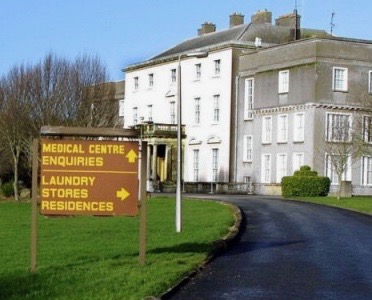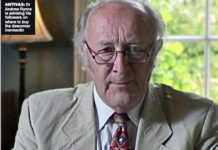By Michael O’Farrell
Investigations Editor – Irish Mail on Sunday.
A FATAL Covid-19 outbreak at a St John of God residential unit has raised concerns about the safety of thousands of vulnerable patients housed in similar congregated settings.
St John of God (SJoG) confirmed last night that one resident at the charity’s Drumcar residential campus in Co. Louth had died and nine of 13 staff members working in a unit that houses three residents had contracted the potentially fatal virus. The outbreak, and how the HSE dealt with it, raises concerns about the HSE’s testing strategy for the 2,000-plus intellectually disabled residents in similar settings nationwide.
Unlike nursing homes, where staff and residents are blankettested every two weeks, congregated settings are not mass-tested even though they house vulnerable patients in groups. This failure to mass-test even after a case is detected is a concern for many workers in congregated settings.
‘One of the lads tested positive and of course we automatically assumed they’ll test us all,’ one health worker in a HSEfunded communal setting told the Irish Mail on Sunday this weekend.
‘We just don’t understand. If someone tests positive, as a resident or a staff member… they should test us all. It would be a lot better.’ The Drumcar outbreak began on October 14, when one intellectually disabled resident tested positive. The resident was housed, together with two other long-term clients, in adjoining units staffed day and night by a team of 13.
But according to a whistleblower, the HSE waited more than a week to test the fellow residents and did not move to mass-test staff.
When other residents were tested, one was confirmed positive and has since tragically died. The deceased was 58 years old.
Meanwhile, the 13 staff who were denied HSE testing, were left to seek their own tests via their GPs.
This is confirmed in an email sent to staff by their manager in the days after the first resident tested positive.
‘Despite CEO Claire Dempsey getting in touch with senior HSE personnel re mass-testing for staff, the advice remains the same,’ the email to staff reads. ‘Public health risk assessment does not dictate the need for masstesting as staff have been deemed to be casual con-tacts,’ the email reads.
Despite being officially deemed casual contacts, nine of the 13 staff contracted the virus. Two became seriously ill and were hospitalised.
Since then a further Covid case has emerged involving a member of Drumcar’s laundry which had to be closed for two weeks.
Speaking on condition of anonymity, one employee said they believed earlier testing could have prevented the tragic fatality and saved staff from infection.
‘The residents weren’t tested for another week and a half after that and then one of them passed away. If they were tested earlier, you’d wonder would the outcome have been the same,’ the employee said.
‘I have friends working in nursing homes and they’re tested every two weeks and they can’t understand how it’s so different for us especially because our residents are so vulnerable as well.’ The staff member said they had never been contacted by anyone from the HSE’s public health team and had to source their own test.
The MoS asked the HSE to address the decision not to mass test at the outset… and why there was no public health follow-up with staff. We asked how many outbreaks, cases and deaths have occurred in such congregated settings and what testing is planned. The HSE did not address these questions but said ‘very significant’ resources and effort were going into tackling Covid-19 in disability services.
According to its recently published annual accounts, the SJoG group suffered significant Covidrelated disruption during the first wave of the pandemic.
In all, 300 staff were out on Covidlinked leave in the springtime and by mid-summer 102 staff and 32 residents had tested positive. By July 20, three of the charity’s residents had died from Covid-19 – this figure is now four.
The Drumcar outbreak raises serious questions for the residents living in congregated communities – a decade after the government moved to abolish such settings.
In 2011 the government committed to a new ‘community inclusion’ strategy that was to see all congregated institutions closed by 2018. That target has not been met even as inspections from the Health Information and Quality Authority repeatedly criticised the suitability of congregated settings.
An inspection report for the Drumcar facility published this summer reads: ‘Due to the layout of bathrooms and the institutional nature of the premises, it does not meet the requirements of the regulations.’ According to the report, SJoG had informed Hiqa that the Drumcar unit was to close by March 2020 – but pulled back from that last year due to funding difficulties.
Mark O’Connor, Community Engagement Manager for Inclusion Ireland, said last night that those in congregated settings were ‘more at risk of things like Covid-19 when there are outbreaks’.
‘If there’s one thing that the whole Covid-19 situation has exposed in Ireland it’s how we care for our vulnerable populations,’ he said.
An SJoG spokesman confirmed the outbreak at the Drumcar facility, saying a resident became unwell, was tested then diagnosed with Covid-19: ‘…The resident was isolated. Nine staff members… and another two residents were subsequently diagnosed as having contracted Covid-19.
‘The condition of one of the other residents then deteriorated and, after being hospitalised, he sadly lost his battle to Covid and died in early November… All those who have tested positive for Covid-19 have recovered or are continuing to recover in isolation.
‘On a national basis, SJoG Community Service can confirm that 44 residents and 142 staff members were confirmed as having contracted Covid-19. We have sadly lost four residents to the virus.’




